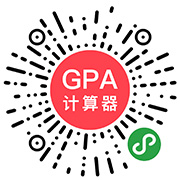What Is the Best College in
什么是美国最好的大学?
When I see preachy posts about college admissions -- SECRETS OF A COLLEGE ADMISSIONS OFFICER REVEALED! -- 13 COLLEGE ADMISSIONS SECRETS THEY DON‘T WANT YOU TO KNOW -- HOW TO GET ADMISSIONS OFFICERS TO SAY “YES” -- 6 SECRET TIPS TO GET INTO YOUR DREAM SCHOOL -- I tend to feel vaguely angry, and yet here I am to offer another. Though, to be fair, this one is unlike those mentioned. It’s something else, and it‘s something important to me.
当我看到讨论大学录取的啰嗦的海报们时—(他们通常写着)一个大学的招生官透漏了13个不为人所知的大学录取的内幕。--六个让招生官对你说“YES”,撬开你梦想学校大门的窍门。看到这些,我总是感到茫然的愤怒,但在这里我想提供另外一点。尽管坦白的说,这一点和那些经常被提到的窍门不同,却是对我至关重要的一点。
It’s about the way we talk about colleges. It‘s about contrived hierarchies. It’s about distractions. It‘s aboutAMERICA’STOPCOLLEGESand WHY FORBES REMOVED FOUR SCHOOLS FROM ITS AMERICA‘S BEST COLLEGE RANKINGS. It’s about excellence.
这是关于我们评判学校的方式,关于对院校人为的分类,以及对公众所造成的选校的干扰。这是有关福布斯评出的所谓美国顶尖大学和福布斯之所以会把四所大学从他的排名中删除的原因,实际上我们要讨论评判学校优秀的标准。
Because we seem to have forgotten that excellence -- in schools, in people, in general -- isn‘t linear. Not in any capacity. Not for a second. These rankings pretend that excellence is quantifiable -- it’s not -- and that we all value the same things -- we don‘t. In its 2013 rankings, for example, Forbes values “Student Satisfaction” at 22.5 percent, “Post-Graduate Success” at 37.5 percent, “Student Debt” at 17.5 percent, “Graduation Rate” at 11.25 percent, and “Nationally Competitive Awards” at 11.25 percent. I, on the other hand, am not so sure.
我们似乎忘了无论对于院校,个人或是普遍意义上的优秀,都不是线性的。也从来不能够被这样武断的量化。然而这些排名却假设了学校的表现是能够被量化的,并且人们所关注的都是学校同一个方面的表现。以福布斯2013年的排名为例,用这样的比例分配来评测院校,学生满意度—22.5%,研究生成功率—37.5%,学生贷款—17.5%,毕业率11.25%,国家奖励11.25%。然而,我不能确定,当我们用这些比重和各种因素(可能是非常主观的判断)综合制定出标准并评出一个年度大惊喜--福布斯前300院校名单的时候,是否反而使已经足够担忧的我们,学生和申请者们选择大学的过程变得复杂。我们通过对父母,祖父母,邻居,朋友循序渐进地灌输这些观点(如我们经常听到这样的话“那是个好学校”“她到底是怎么想的不选哪个学校而选了这个?”),而使原本就已经很困难的申请过程变得更艰难,干扰更多,更加政治化。我们总是在传播这些只关注排名的判断。
When we contrive hierarchies -- BIG SURPRISES IN FORBES ’TOP 300 COLLEGES‘ LIST -- based on what other people decided were the appropriate weights of appropriate factors (which are largely subjective) we complicate things for us, the students, the applicants, the people who are already sufficiently anxious about everything else. We make a difficult process more difficult, more distracting, more political, by instilling mindless opinions in our parents and grandparents and neighbors and friends (“That’s a great school,” “Why in the world would she choose this school over that one?”). We breed judges that recognize little beyond the rankings.
When we pretend that colleges don‘t exist individually, as intricate, self-contained entities, as different kinds of excellent, as places where people meet people and help people and collaborate with people and change people and become people, but as five vaguely quantitative factors, as “better” or “worse,” we are kidding ourselves. More, we’re crippling ourselves.
We make the admissions process more painful than it needs to be. We‘re forcing order, as we tend to, to disguise the chaos. And this process is chaos. Don’t ignore it. Embrace it. When we cheat the process we cheat ourselves. We look past the schools that might be right for us (“I‘ve never even heard of that school”) while we can praise those that might be right only for the “methodology,” the science, of Forbes Magazine.
当我们不把学校看做独立的,复杂的,自成一体的实体,认为学校没有不同表现形式的优秀,不把学校作为人们相识,相助,协作,改变,互相激励的地方,还是把大学归结为五个含糊的量化因素,由此来评价它是“更好”还是“更差”的时候,我们简直是在拿自己开玩笑,同时严重削弱了我们的判断力。是我们自己让录取过程变得不必要的痛苦。我们总是想用排名顺序来掩饰这其中的混乱,然而这个过程本身就是一场混乱。我们只能包容而决不能忽视这种混乱。我们在其中作弊,就是自欺欺人。我们将会错过本来也许是合适自己的学校(我从没听说过那个学校),不过我们当然可以单单称赞《福布斯》杂志提供的“方法”和其科学性。
And this process isn’t science; it‘s visceral. It’s different for all of us. With time and research and contemplation our own personal hierarchies reveal themselves. But not as permanent things. Not as “NationalUniversityRankings.” Not as “America‘s Top Colleges.” When our own hierarchies develop, they develop for ourselves only, and they’re ephemeral. They‘re personal, and they evolve.
这一过程也并非是一个学科,而是出于本能的。对于我们每个人都是不同的。随着时间的推移,去研究和注视我们自己,产生我们自己的标准和分类,才真正揭示了它的意义。但是这也不是绝对的,不是像“美国综合大学排名”,也不像“美国顶尖大学排名”那样。即使我们自己的标准产生了,它也只适用于我们自己,是瞬息而变,不断进化的。
So callingVassarCollege-- Forbes’s 27th top college, a private school of 2,386 students inPoughkeepsie,New York-- a better college than the U.S. Naval Academy -- Forbes‘s 28th top college -- is analogous to calling realism a better philosophy than idealism. They’re not better or worse -- they‘re different. They’re right for different people. They‘re right at different times. They’re huge, elaborate, nebulous things that are to be compared but not ranked. And, anyway, why should I or any other applicant care what Forbes -- “Information for the World‘s Business Leaders” -- thinks about colleges, or anything, really? It’s a magazine with loud, profitable headlines. And I‘m a teenager who wants to become a whole human being.
所谓的瓦萨学院——福布斯排名中第二十七位的顶级学院,一个在纽约州波基普西的有2386个学生的私立学院,-- 一个比28名的美国海军学院优秀的文理学院—这种类比就好比是说现实主义是比理想主义高等的哲学一样。而实际上他们根本不能被区分成好或不好— 它们是不同的,因为他们分别适用于不同的人,不同的时代。这种宏观,复杂和朦胧的概念只能做比较而非排名。同样无论怎么说,我和其他申请者都没有理由去关心福布斯—“关于世界商业领袖的信息”—去思考他们评出的学校或者其他任何东西,对吧?它仅仅是一本充满响亮,急功近利的大标题们的杂志。可我只是一个想长大成人的少年而已。
To contribute to a culture in which someone can be applauded purely for attending one of “The Schools That Matter Most” while another might be deemed somehow “less,” by extension, for attending College No. 131 seems downright cruel. Finding the school that matters most to me is plenty difficult, even ignoring the distraction of rankings. I shouldn’t care about the rankings. My grandma shouldn‘t care. My family friend across the dinner table shouldn’t care. The rankings shouldn‘t matter at all. But they do. And they’re irresistible because we have an insatiable desire to know everything. To get the facts. To create order. So we search, we ask around, we browse and browse and browse.
在一种文化中,有人可以因为上了一个“大家眼里很牛的学校”而被称誉,而去了另外一些大学的则会被认为不那么重要,比如说排名131的大学,要是为这样的文化去贡献,会是多么残忍的一件事情。对于我来说,就算不考虑排名的因素,找到对我最重要的学校也是件特别困难的事儿。我的家庭成员都不会去关心排名的问题。可是有些人会关心。并且他们使这些信息变得无法抗拒,因为我们总是有强烈的欲望去知道一切。拿到事实,制造顺序。所以我们自己在搜索,我们在问周围的人,我们总是问啊问啊问啊。
And then, after extensive research, and after extensive conversation, and after extensive introspection, what do we find?
然后呢,在广泛的调查交谈和深刻的自省之后呢,我们得到了什么?
TheBestCollegeinAmericadoes not exist. It‘s a myth. It would be too easy. Sure, it might be Stanford, as Forbes insists, but Forbes is only guessing. Consider the primary sources -- then ask yourself, not Forbes. Forbes doesn’t know the best college for you. Google doesn‘t know. U.S. News & World Report (is that even a real thing?) doesn’t know. When you come across posts with titles like this one, remember that you‘re a person, and that I’m a different person, and that the answer lies only with you. And, yes, I do realize that that makes the process hard, and complicated, and maybe even annoying. But it also makes it interesting. When we do it thoroughly, we emerge knowing ourselves better. And, anyway, we‘re all doing this together -- we’re all lost in chaos together at the same time -- so feel free to message me if you need to talk. Because I sure do.
美国最好的大学是根本不存在的。要是有就太显而易见了,根本是天方夜谭。当然,最好的也许会是斯坦福,就像福布斯坚持认为的那样,但是福布斯也仅仅是猜测。我们应当做的是充分权衡外界的信息,之后扪心自问,而不是去问福布斯。因为福布斯不可能知道对于你来说最适合的大学。谷歌,或者US News(甚至都不是什么真实的东西)更不会知道。当你在浏览类似这样标题的文章时,记得你是一个独特的人,并且只有你自己知道答案。是的,我知道这样会使这一过程变得更艰难,更复杂,甚至更令人沮丧。但是同时这也使它变得生动有趣。









 高考后留学美国
高考后留学美国 疫情下美本申请量不降反升
疫情下美本申请量不降反升 美研申请规划流程
美研申请规划流程 美国本科“TOP30”项目
美国本科“TOP30”项目






 哈佛大学
哈佛大学 纽约大学
纽约大学 布朗大学
布朗大学 芝加哥大学
芝加哥大学 杜克大学
杜克大学 约翰霍普金斯大学
约翰霍普金斯大学

